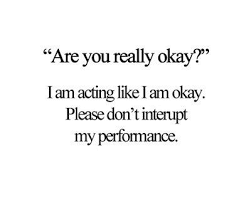
While I do my best to concede nothing to MS, I’m not reckless. I do what my body allows. Over the years I’ve become very aware of my body mechanics and consciously think about them whenever I am moving for two reasons. The first is because if I don’t, falling becomes a real possibility because my balance is completely shot and it doesn’t take much to throw it off. As a result, I average only a few falls a year. The other reason is the progression has slowly devoured my leg. Starting in the toes and feet fourteen years ago, it has insidiously made its way to almost mid-thigh. The ankle and knee bend slightly to the right when I walk, so I know that one misstep could cause something to tear. Needless to say, I am careful to a fault whenever I am upright.
So why the hell did I wake up Wednesday morning with a stiff and swollen knee?
It had become swollen before, usually because of strain I put it under when I work outdoors, but nothing like this. The joint was uncomfortably swollen, and weaker than normal too. At first, I freaked a little because I assumed it was the MS. I never had that moment where I stepped wrong or twisted it. I never did anything where I had the searing pain followed by immediate swelling and throbbing. So how couldn’t it be the MS? I reached out to my neurologist and made an appointment to see him the next day.
As the workday proceeded, the joint got stiffer, and it became a little painful. Then I remembered a day when I was simply walking from one room in the house to another when I felt a sudden pain in the knee and the leg buckled. Body mechanics, I thought, because the pain stopped as quickly as it came, and didn’t last. It was like a bee sting in the sense that it happened unexpectedly, hurt like hell, but only for a second before it went away. It was more shocking than anything else, and once I stabilized myself the knee didn’t hurt, and my walking was no different than before the incident. I don’t remember when this happened, but it wasn’t recent, which is why I hadn’t thought of it earlier.
Maybe I should see a doctor, I thought. Just in case. Long story short, the word blood clot was discussed at one point, which really caught my attention, but ultimately an x-ray was taken and the knee joint was fine. It was swollen, but as they poked, prodded, torqued and examined the joint, I felt no pain. I thought they were going to drain the thing, but apparently there wasn’t enough fluid to warrant it. Instead, I received a tapered dose of steroids to be taken over six days, with instructions to follow up if the symptoms didn’t improve. They speculated that I could have a partial tear or some loose body floating around in there, but since there was no pain, there wasn’t any urgency. Not that I minded. I hate needles, which you might think odd since I get stuck multiple times in my arms every month, but there is a big difference between hitting a vein and sticking something much bigger into a joint. Maybe it isn’t as bad I assume, but I’m in no hurry to learn.
I’m on day five of the meds now and there has been no improvement. It’s worse, although it didn’t start that way. The day after the examination the knee was less swollen and felt looser. I figured they were right and stopped worrying about it. I still went to see the neurologist the next day. He didn’t think it was likely that this was MS related but understood my feelings about the pace of its progression. We decided to have a new set of brain/spine MRIs because the last one I had was over five years ago, and I left his office feeling positive about things.
Three days later, I can barely walk. I know what the MS feels like in my leg, and this is different. I’ve always walked slowly and laboriously, but never gingerly. I am now because I can’t put any kind of weight on the leg without feeling pain in one spot in the knee. I’m not completely incapacitated, but when I am on my feet, I’ve been reduced to walking slowly in a straight line provided I have a cane to take some of the weight off the knee. Even inside the house, which is a first. Stairs are tough.
Well see how this feels on Monday, but I’m not optimistic. Over the next couple of weeks, I will have to shoehorn an appointment with an Orthopedist and whatever they recommend, with a plasma transfer and Ocrevus infusion, and a brain/spine MRI. Swell! I long for the old days, when I rarely went to a doctor for anything, and the only times I was in hospitals was as an employee, not every month as a patient like I am now. The main reason early retirement is not a serious consideration is because of my health insurance.
I know I’m jumping to conclusions about the knee. I’ve been off my feet most of the day, and it does feel a little better. But as you can see, the knee isn’t pretty and something still feels wrong. The only saving grace is the knee is in the leg affected by the MS, so I am used to not having the leg be able to do much. If this was happening to the good leg, I literally would not be able to walk.
So off to another doctor I go, hoping to get answers and solutions. One of the questions concerns healing with MS. If they scope the knee and repair stuff in a leg that is consumed by the effects of MS, does that impact or compromise healing? It’s a nerve thing, so I don’t think it should, but I am curious.
Regardless, this needs to get taken care of because I don’t want this to linger when the warm weather gets here. My life is sedentary enough.



 about.
about.







You must be logged in to post a comment.